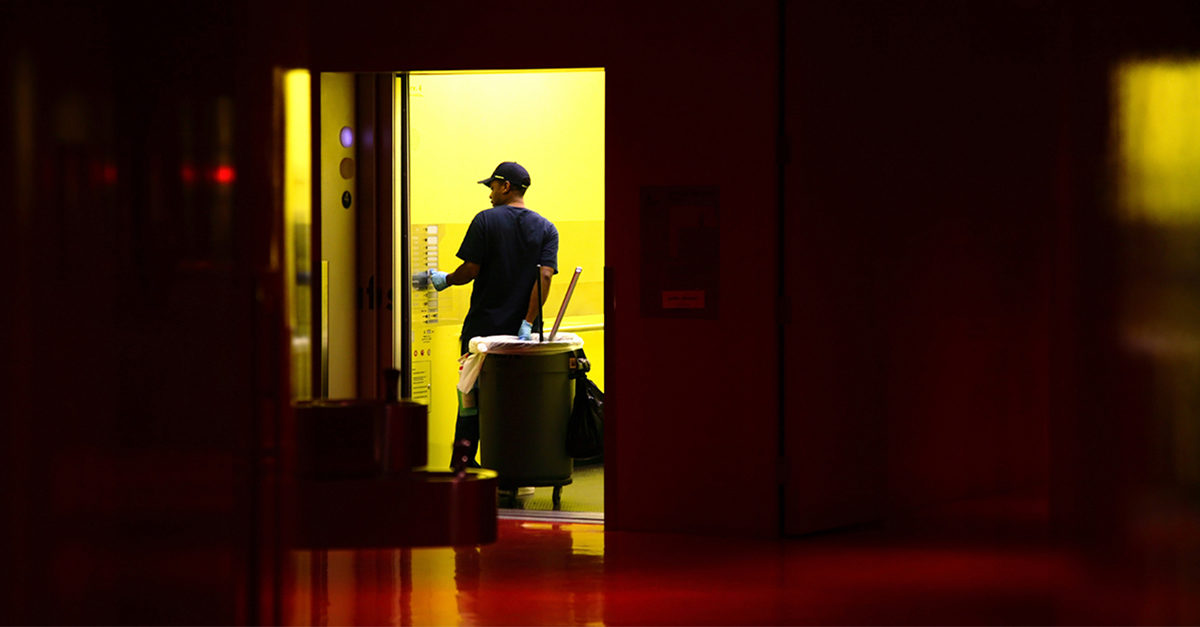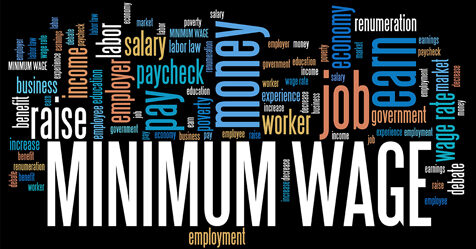Even if companies aren’t open around the clock, they may still keep their lights on in the wee hours of the morning. For many businesses, the night shift is an excellent time to complete routine maintenance, whether that’s sanitizing floors or carrying out general housekeeping duties. Even 24/7 businesses opt for overnight custodial services; they know that employee and customer traffic will be light during that time.
Although cleaning after hours makes practical sense, it requires forethought and planning on everyone’s part—otherwise, business leaders may have to spend time dealing with avoidable problems and maintenance vendors could find themselves with a lack of third-shift clientele.
Why businesses worry about after-hours cleaning
Although it’s smart to clean overnight, issues can arise when facility managers hire after-hours cleaning and maintenance providers. Perhaps the biggest problem is when a vendor fails to provide uniformed, licensed, trained, and authorized staff. Unfortunately, many companies have learned the hard way that their cleaning vendors didn’t vet staff appropriately.
Security is another concern, chiefly because everyone carries a camera-equipped smartphone these days. When businesses don’t properly guard legal documents, health care files, or government paperwork, security breaches can happen in a flash. Even seemingly harmless acts, such as cleaning technicians taking candy or food from desks and kitchenettes, violates the sense of trust between a business and its maintenance vendor.
Overnight custodial crews can also create uncertainty with their arrival and departure times. Inconsistent schedules mean that companies could overspend on after-hours security personnel and utilities. Further, employees and customers may complain if the crew isn’t finished cleaning by the busier morning hours.
Finally, most businesses worry about disruption posed by different types of cleaning equipment. For example, sometimes maintenance crews’ long water hoses connected from the outside require that doors are propped open, which can lead to security breaches. These hoses can also soil, scrape, and otherwise damage floors. In certain environments, tracked-in debris and moisture may increase bacterial growth and be harmful
to occupants.
The uncertainty that stems from these concerns is the opposite of what a cleaning team should provide—and these issues only widen the divide between maintenance crews and the companies they serve.
Set your clients’ minds at ease
The best after-hours cleaning and maintenance providers understand these concerns and take steps to assuage their customers’ fears. Here’s how you can give your clients a stellar experience and peace of mind.
1. Perform background checks on technicians
There’s no doubt that preemployment screening and drug testing require an investment. Nevertheless, those prehiring processes can differentiate between questionable and reputable candidates. Data from the Society for Human Resource Management (SHRM) shows that 92% of businesses already complete background checks. Therefore, it would not be unusual for maintenance vendors to do the same. Many companies offer affordable and quick background checks that can include the individual’s credit history and criminal background.
2. Offer testimonials and references
Cleaning vendors should offer potential clients a list of customer references before they’re asked to do so. This list could take the form of a one-page handout or an emailed link to a private page on the company website. Either way, hearing other customers’ testimonials and learning about good experiences helps prospects feel confident about signing contracts. Maintenance providers can boost their online and offline credibility by regularly collecting and showcasing client reviews that highlight the reliability, safety, customization, and high-quality service of their operations.
3. Provide proof of insurance
Some cleaning companies are insured, and some aren’t—this is a fact. Rather than waiting for clients to ask for proof of insurance, vendors should give that information upfront. Knowing a cleaning vendor has up-to-date insurance takes away concerns related to accidents or property damage. Because insurance packages can include confusing verbiage, maintenance providers can also distill important topics into easy-to-understand summaries.
4. Issue mandatory ID badges
Each technician should have an ID badge issued by the maintenance company. In some cases, companies may provide secondary badges so technicians can gain access to certain corridors, offices, and other spaces. If possible, ID badges should include the worker’s photograph alongside his or her name, title, and perhaps authorization level. In 24/7 operations where the company’s employees perform tasks alongside maintenance crews, those employees appreciate seeing the same technicians night after night.
5. Provide clients with proof of technician training
Prove to your customers that you have invested in your workers by offering job-appropriate training. Well-educated cleaning technicians exhibit higher levels of confidence when troubleshooting problems and often perform more effectively thanks to their deep understanding of the industry. Providers should conduct regular workshops throughout the year; one trending topic, for example, could be eco-friendly options for sanitizing hard and textile surfaces. Additionally, prospective clients gain a sense of security upon learning that the on-site technicians hold an ISSA Cleaning Management Institute (CMI) certification or work for a firm with an Institute of Inspection Cleaning and Restoration Certification (IICRC) or Carpet and Rug Institute Seal of Approval.
Facility managers will always have questions for after-hours cleaning and maintenance providers. Vendors that anticipate those inquiries will be more likely to win initial and repeat contracts, allowing them to build their brands—and create spotless reputations.




